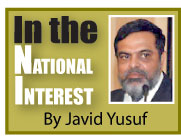Columns
Independence Day reflections: The glass is half full, not half empty
View(s):Sri Lanka celebrated its 74th Independence Day while going through what is undoubtedly the bleakest period in its post-Independence history. As people struggle to carry on daily, amid milk powder shortages, gas shortages, cement shortages, sky rocketing prices of essential goods, prospects of power cuts and a whole host of other challenges, the temptation is to write off the post-Independence era as a complete failure.
But is it really so? No doubt there have been many mistakes in governance ranging from many bona fide errors in judgement to rank incompetence in decision making and implementation. Yet there are areas in which the country has made great strides contributing to the wellbeing of the people. 
Health is one such example. It is the competence and dedication of the health sector that has helped the country to withstand the impact of the COVID-19 pandemic. The competence of the doctors and other medical personnel may have prevented more serious consequences of the virus in the lives of the people.
The discussions among doctors and other health sector personnel that took place in the media during the last two years and the analysis of COVID related issues by the country’s medical experts has given the country a glimpse of the professionalism and competence of its doctors–a source of great pride to the nation.
The health indices such as increase in life expectancy and fall in infant mortality rates are other positives in the health sector. Of course malnutrition has increased but that is directly attributable to economic policies of the State.
Free education too has helped to open doors for the upward mobility and economic betterment of the poor and marginalised. Sri Lankan professionals continue to match and often outshine their counterparts in their respective fields in other parts of the world.
Those who took over the reins of Government from the British have had their share of successes and failures. Some of the mistakes have been later corrected. On the other hand some achievements have been reversed.
For instance the disenfranchisement of the plantation workers soon after Independence was a grave injustice done to those who had literally sweated to fill the national coffers. Several years later, through the Sirima-Shastri pact some degree of correction of this injustice was made and citizenship rights were granted to many of them who were thereafter able to elect their own representatives.
Another example of a mistake that was subsequently corrected was the standardisation of marks for university admission introduced in 1971. The objective of the exercise was to enable students who studied in under-resourced schools to enter universities.
Unfortunately this was done through media wise standardisation of marks with the Sinhala medium students gaining entry to the university with lesser marks than those who had studied in the Tamil medium. As a result the perception of being discriminated against was imprinted in the minds of Tamil students and later contributed greatly to the aggravation of the armed conflict. However this policy was corrected later and media based standardisation was replaced by district wise standardisation.
Another colossal mistake in governance was the introduction of the Executive Presidency which eroded the foundation of democracy and contributed to institutional degradation. This has had a far reaching impact on governance and greatly contributed to the deterioration of the political culture with disastrous results to the country.
This was sought to be corrected by the 17th Amendment to the Constitution but the Executive Presidency was once again restored by the 18th Amendment. The 19th Amendment took steps to curtail the powers of the Executive Presidency but the 20th Amendment restored the status quo.
The current ills faced by the country could be largely attributed to the re-introduction of the provisions relating to the 20th Amendment.
Another positive of the post-Independence era was the international image that the country enjoyed. The country’s stock in the eyes of the world was so great that it not only took the leadership of the non-aligned world but even hosted the non-aligned conference which was attended by a range of world leaders.
In a conflicted world, Sri Lanka was able to straddle both sides of the international divide and enjoy the respect of the international community.
While there have been many achievements in the post-Independence period which the country can be rightly proud of, it is not enough to bask in the reflected glory of the past.
A national effort is required to improve the lives of the citizenry. Independence will have true meaning only if the people are happy and contented. Unfortunately this is not the case today.
Poor governance has made the lives of the people a great struggle. The various ethnic and religious communities are greatly challenged by insensitive actions of government. Hate speech is widely prevalent with little or no action being taken by the authorities.
The youth are looking for opportunities to migrate. Corruption has taken seeped into every sector of the economy and is a great impediment to development. The quality of justice has eroded as a result of weaknesses in the administration of justice.
The role of the people in contributing to the changes necessary to rebuild the country cannot be underestimated. Griping that all 225 members of Parliament should be dumped in the Diyawanna Oya is not a solution as these are the representatives chosen by the people themselves. Besides there are many Parliamentarians who are capable of and are indeed making an effort to contributing to a positive change in the country’s fortunes.
(javidyusuf@gmail.com)
Buying or selling electronics has never been easier with the help of Hitad.lk! We, at Hitad.lk, hear your needs and endeavour to provide you with the perfect listings of electronics; because we have listings for nearly anything! Search for your favourite electronic items for sale on Hitad.lk today!


Leave a Reply
Post Comment